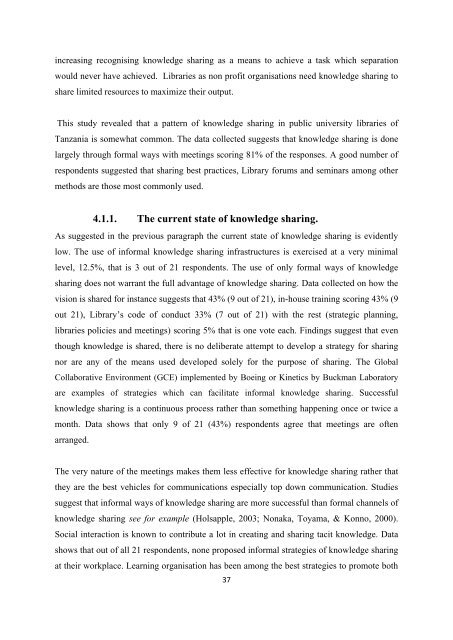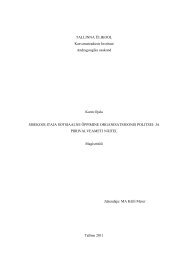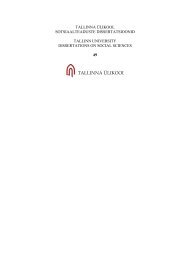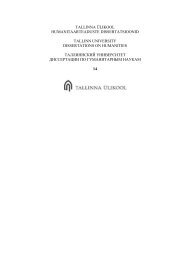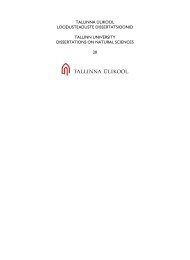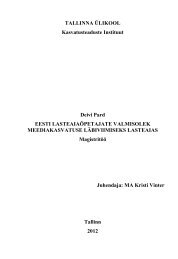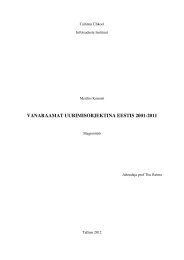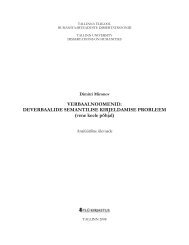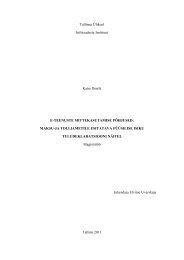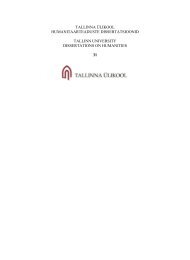Download (1157Kb) - E-Ait
Download (1157Kb) - E-Ait
Download (1157Kb) - E-Ait
Create successful ePaper yourself
Turn your PDF publications into a flip-book with our unique Google optimized e-Paper software.
increasing recognising knowledge sharing as a means to achieve a task which separation<br />
would never have achieved. Libraries as non profit organisations need knowledge sharing to<br />
share limited resources to maximize their output.<br />
This study revealed that a pattern of knowledge sharing in public university libraries of<br />
Tanzania is somewhat common. The data collected suggests that knowledge sharing is done<br />
largely through formal ways with meetings scoring 81% of the responses. A good number of<br />
respondents suggested that sharing best practices, Library forums and seminars among other<br />
methods are those most commonly used.<br />
4.1.1. The current state of knowledge sharing.<br />
As suggested in the previous paragraph the current state of knowledge sharing is evidently<br />
low. The use of informal knowledge sharing infrastructures is exercised at a very minimal<br />
level, 12.5%, that is 3 out of 21 respondents. The use of only formal ways of knowledge<br />
sharing does not warrant the full advantage of knowledge sharing. Data collected on how the<br />
vision is shared for instance suggests that 43% (9 out of 21), in-house training scoring 43% (9<br />
out 21), Library‟s code of conduct 33% (7 out of 21) with the rest (strategic planning,<br />
libraries policies and meetings) scoring 5% that is one vote each. Findings suggest that even<br />
though knowledge is shared, there is no deliberate attempt to develop a strategy for sharing<br />
nor are any of the means used developed solely for the purpose of sharing. The Global<br />
Collaborative Environment (GCE) implemented by Boeing or Kinetics by Buckman Laboratory<br />
are examples of strategies which can facilitate informal knowledge sharing. Successful<br />
knowledge sharing is a continuous process rather than something happening once or twice a<br />
month. Data shows that only 9 of 21 (43%) respondents agree that meetings are often<br />
arranged.<br />
The very nature of the meetings makes them less effective for knowledge sharing rather that<br />
they are the best vehicles for communications especially top down communication. Studies<br />
suggest that informal ways of knowledge sharing are more successful than formal channels of<br />
knowledge sharing see for example (Holsapple, 2003; Nonaka, Toyama, & Konno, 2000).<br />
Social interaction is known to contribute a lot in creating and sharing tacit knowledge. Data<br />
shows that out of all 21 respondents, none proposed informal strategies of knowledge sharing<br />
at their workplace. Learning organisation has been among the best strategies to promote both<br />
37


